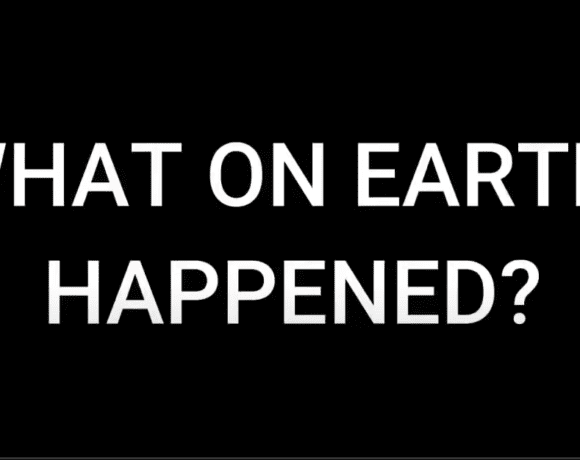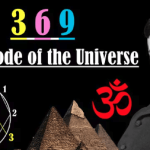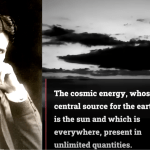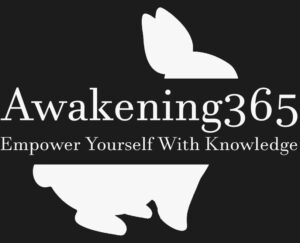The Misconceptions About Flat Earthers
When most people hear the term “Flat Earther,” they immediately think of a group of uneducated, conspiracy theorists who believe in the most outlandish ideas. This perception is often fueled by misinformation and straw man arguments propagated by websites like the Flat Earth Society and documentaries like “Behind the Curve,” which showcase the most extreme examples of so-called Flat Earthers.
However, this stereotype is far from the truth. Many Flat Earthers are highly educated individuals who have simply questioned the mainstream narrative and found it lacking in evidence. They have done their own research and come to different conclusions than what we have been taught in school.
Disarming the Anti-Flat Earth Defense Mechanisms
The first line of defense against Flat Earthers is often a condescending tone accompanied by the assumption that accepting this label would immediately pigeonhole someone’s views as irrational. This defensive mechanism is a result of the stereotype discussed earlier.
The key to disarming this mechanism is by avoiding using the term “Flat Earther” altogether. Instead, use alternative phrasing such as “Globe skeptic,” “Level Earther,” or “Questioning Reality” to describe oneself. By doing so, one can present their ideas without triggering the preconceived notions associated with the term “Flat Earther.”
Once the label is out of the way, the next line of defense is often the classic question, “Why would they lie?” Flat Earthers have long claimed that the government and other institutions are lying to us about the true shape of the Earth. However, this “defense mechanism” is not a genuine question but an attempt to defend their belief in the status quo.
It is essential to remind them that the burden of proof lies with those making the claims, not those questioning them. Just like a detective investigating a crime scene would not ask about a motive before examining the evidence, we should not blindly accept what we are told without asking questions.
The Importance of Open-Mindedness
In the Flat Earth debate, as in any debate, it is crucial to approach the topic with an open mind. We should not dismiss alternative viewpoints without investigating them first. The truth about our world may be more complicated than what we have been taught, and it is up to us to discover it.
One of the keys to being open-minded is to listen to the other side without immediately dismissing their ideas as irrational or uneducated. We should approach the discussion with the intention of learning, not proving our point.
Another important aspect is to do our own research and examine the evidence. We should not blindly accept what we are told but rather investigate the claims and make our own conclusions based on the evidence presented.
The Importance of Critical Thinking
Critical thinking is a crucial skill when it comes to analyzing and evaluating claims, arguments, and evidence. In the Flat Earth debate, it is essential to think critically to avoid falling prey to logical fallacies, misinformation, and bias. Critical thinking involves asking questions, examining evidence, and evaluating arguments to arrive at a logical and reasoned conclusion.
One common fallacy in the Flat Earth debate is the appeal to authority. This fallacy involves accepting a claim simply because it comes from an authority figure, such as a government agency or a scientist. However, appeals to authority are not always valid, and it is essential to examine the evidence and arguments presented by these authorities before accepting their claims.
Another important aspect of critical thinking is the ability to recognize and evaluate bias. In the Flat Earth debate, there are often strong emotions and beliefs involved, which can lead to biased reasoning and cherry-picking of evidence. It is essential to evaluate claims and evidence objectively, without allowing personal beliefs or emotions to cloud judgment.
Furthermore, critical thinking also involves examining the evidence presented from all sides of the argument. It is crucial to evaluate claims and arguments from both sides of the debate and to consider all the evidence, even if it contradicts our preconceived notions or beliefs. This requires an open mind and a willingness to consider alternative viewpoints.
Responding to Common Anti-Flat Earth Arguments
In the Flat Earth debate, there are several common arguments used to dismiss the claims of Flat Earthers. However, many of these arguments are based on misunderstandings of the Flat Earth position or straw man arguments.
One common argument is that the curvature of the Earth can be observed from high altitudes or from space. However, Flat Earthers do not necessarily deny the existence of curvature, but rather question the extent of the curvature and the shape of the Earth. They argue that the Earth may be flat or have a different shape than what we have been taught.
Another common argument is that the laws of physics dictate that the Earth must be round. However, Flat Earthers argue that the laws of physics are based on assumptions about the shape of the Earth and cannot be used to prove the shape of the Earth. They also argue that there may be alternative explanations for phenomena that are typically attributed to the curvature of the Earth, such as the disappearance of ships over the horizon.
Finally, some critics of the Flat Earth movement argue that the idea is absurd and that it is impossible for so many people to keep such a massive conspiracy secret. However, Flat Earthers argue that the conspiracy does not necessarily involve a massive cover-up, but rather a widespread belief in a false narrative perpetuated by government agencies and the media.
The Importance of Open Debate and Free Speech
In any debate or discussion, it is essential to promote open dialogue and free speech. The Flat Earth debate is no exception. It is important to allow all viewpoints to be heard and to promote a culture of open debate and discussion.
Unfortunately, in recent years, there has been a trend toward censoring and de-platforming alternative viewpoints. This is a dangerous trend, as it can lead to the suppression of dissenting opinions and the stifling of open debate and discussion.
In the Flat Earth debate, it is important to allow Flat Earthers to express their views and to engage in a productive dialogue with those who hold opposing views. This requires a willingness to listen, to consider alternative viewpoints, and to engage in reasoned debate and discussion.
Conclusion
The Flat Earth debate is a contentious and polarizing topic that has gained traction in recent years. While many dismiss the claims of Flat Earthers as absurd or baseless, it is important to approach the debate with an open mind and to engage in critical thinking and reasoned debate.
Promoting open dialogue




















